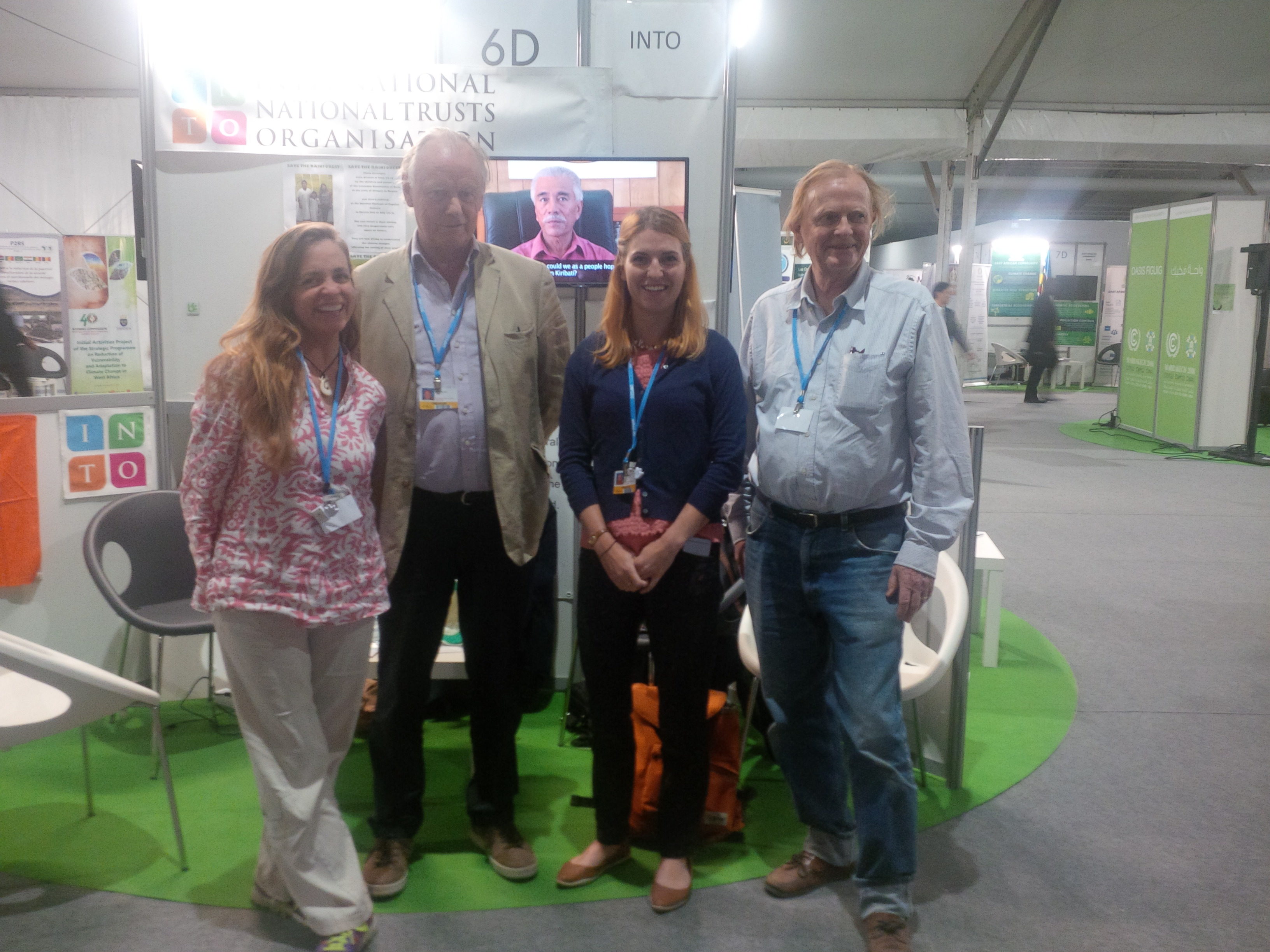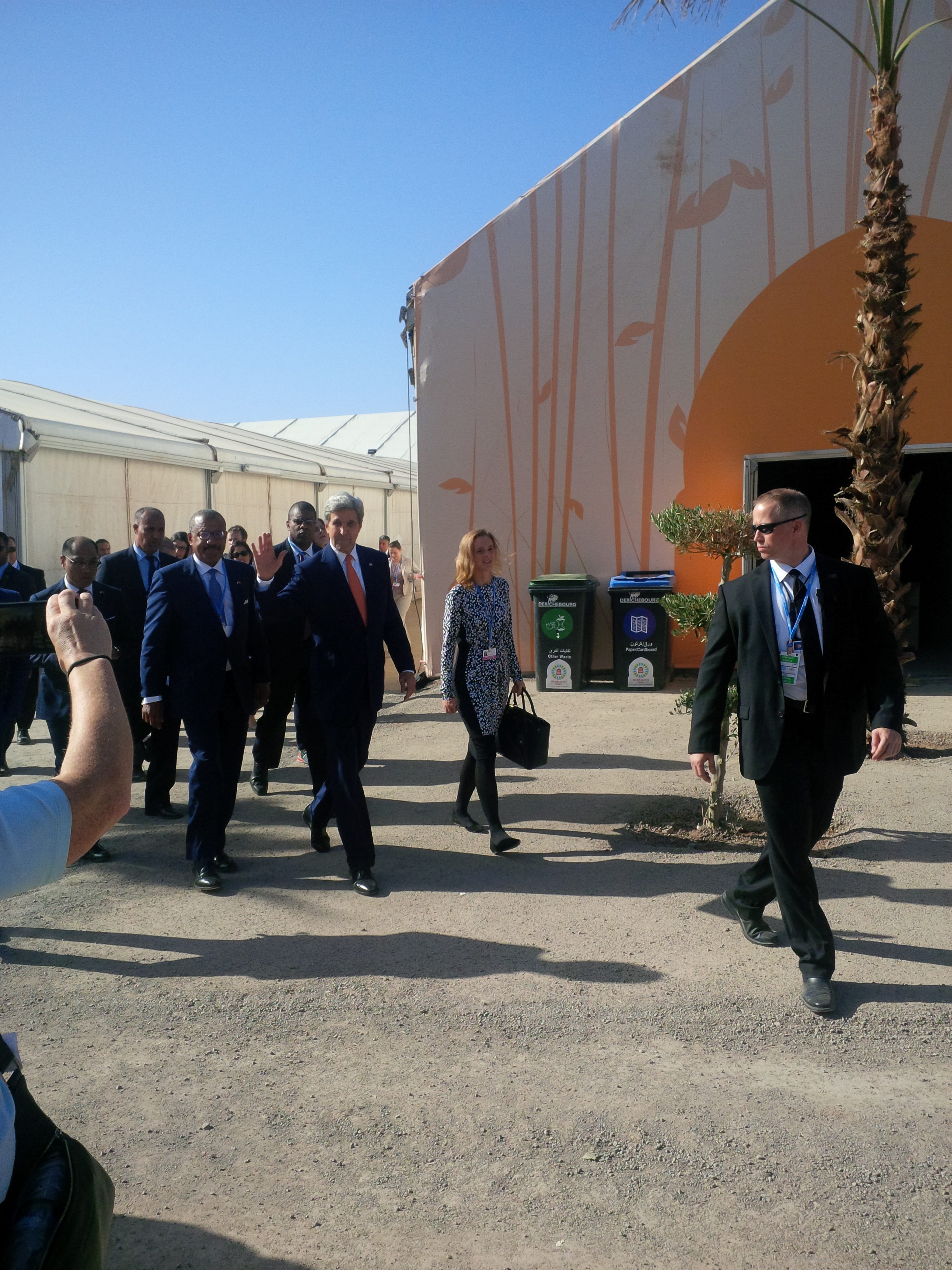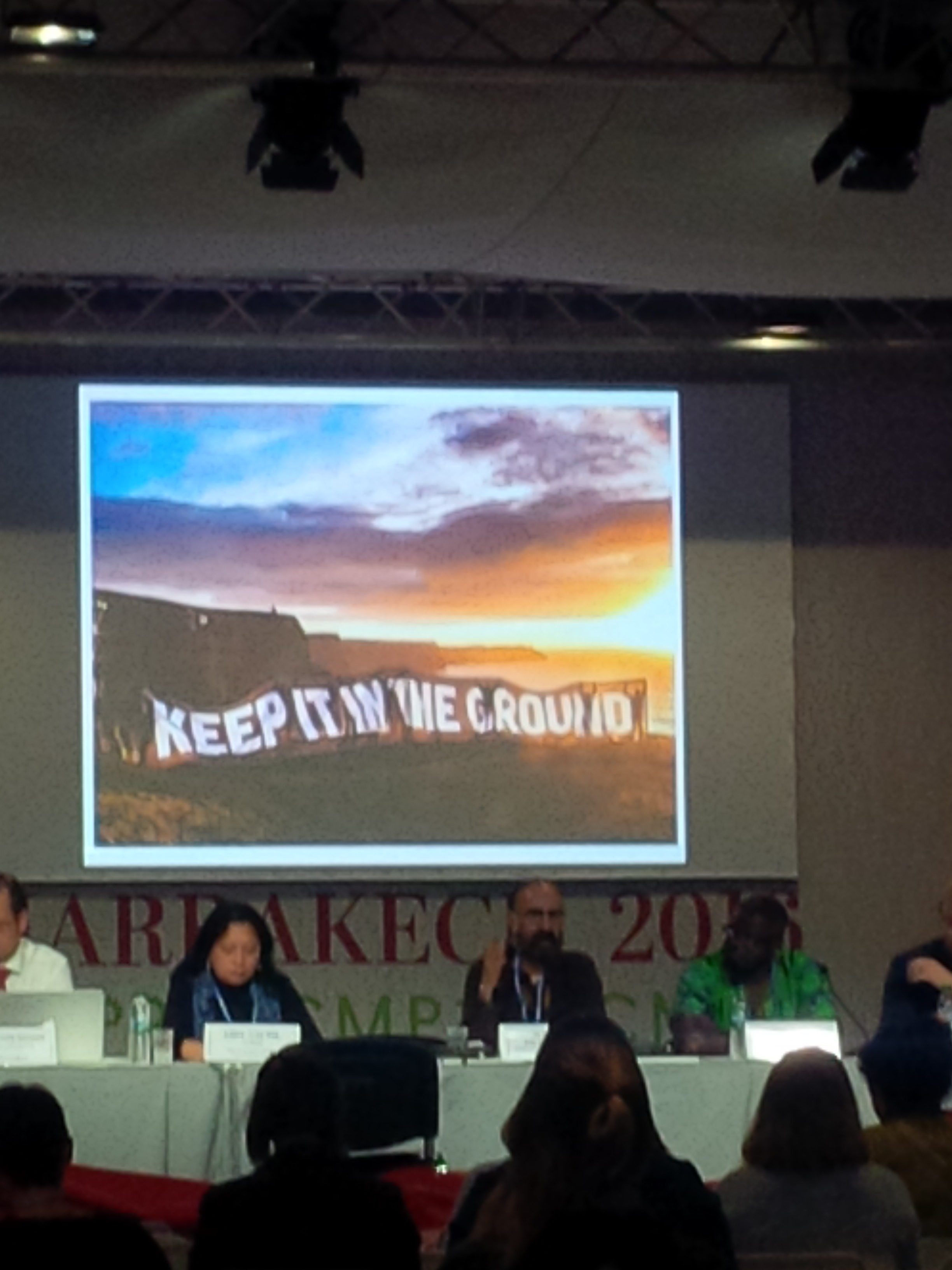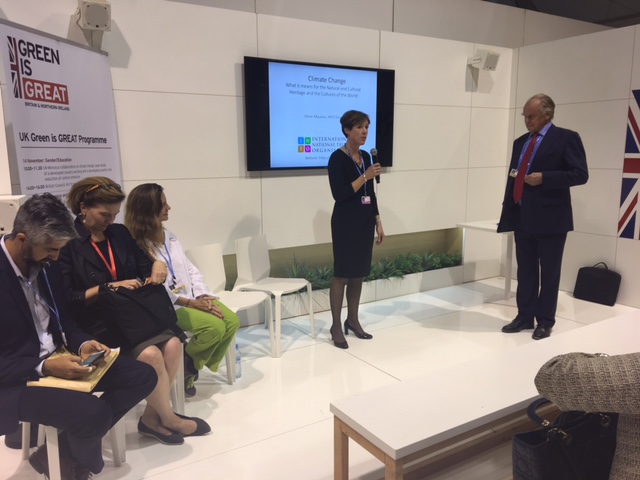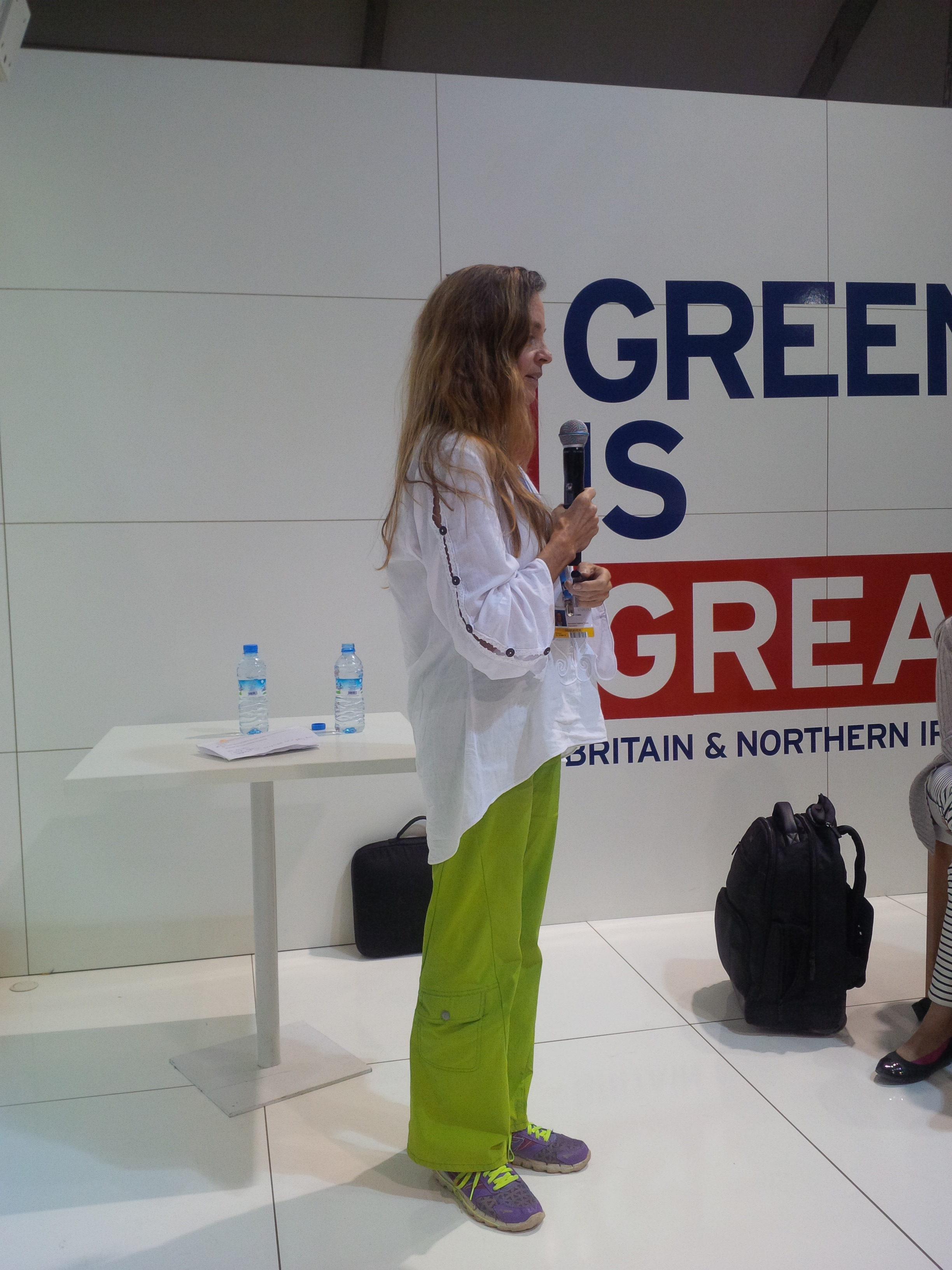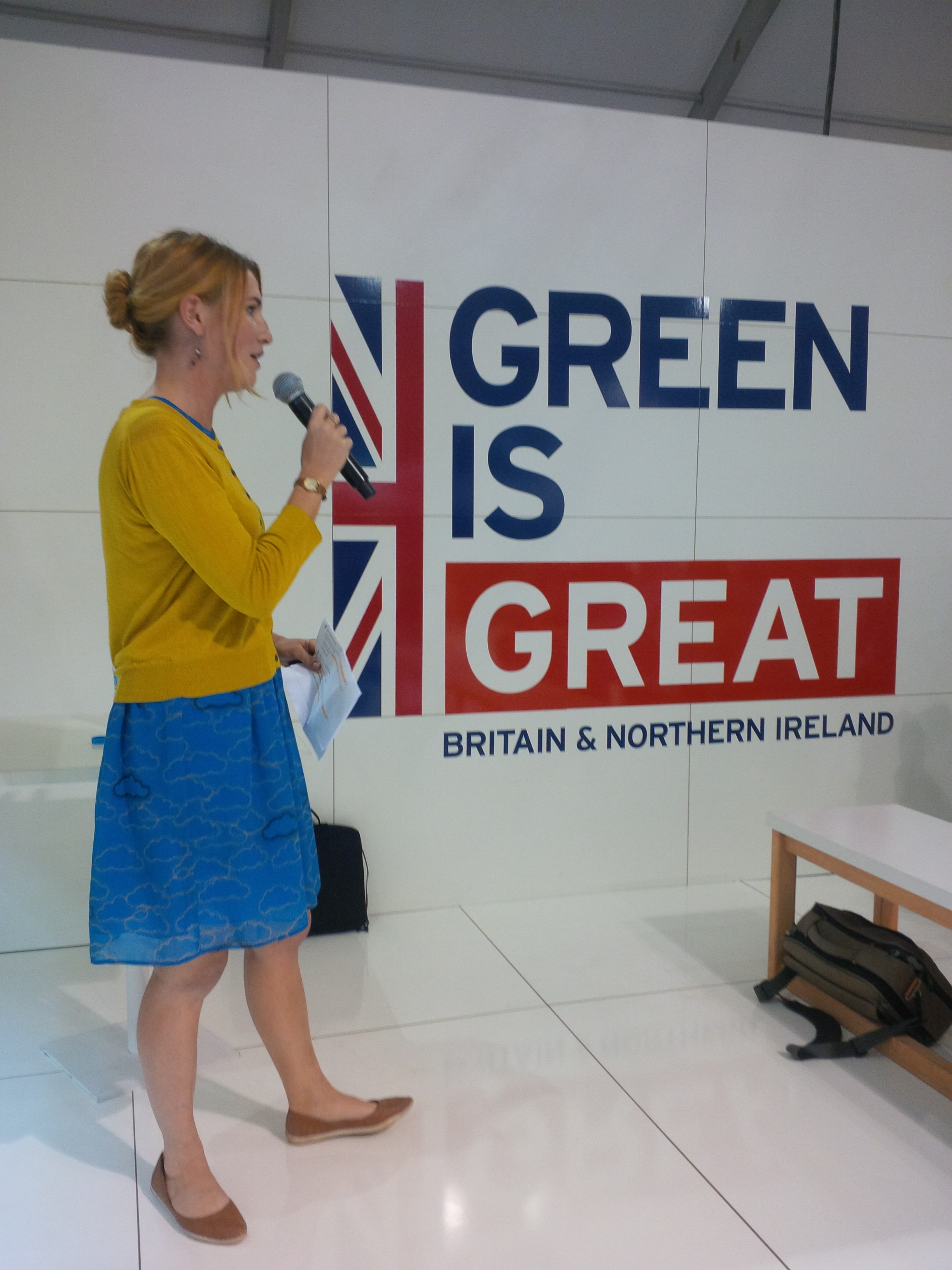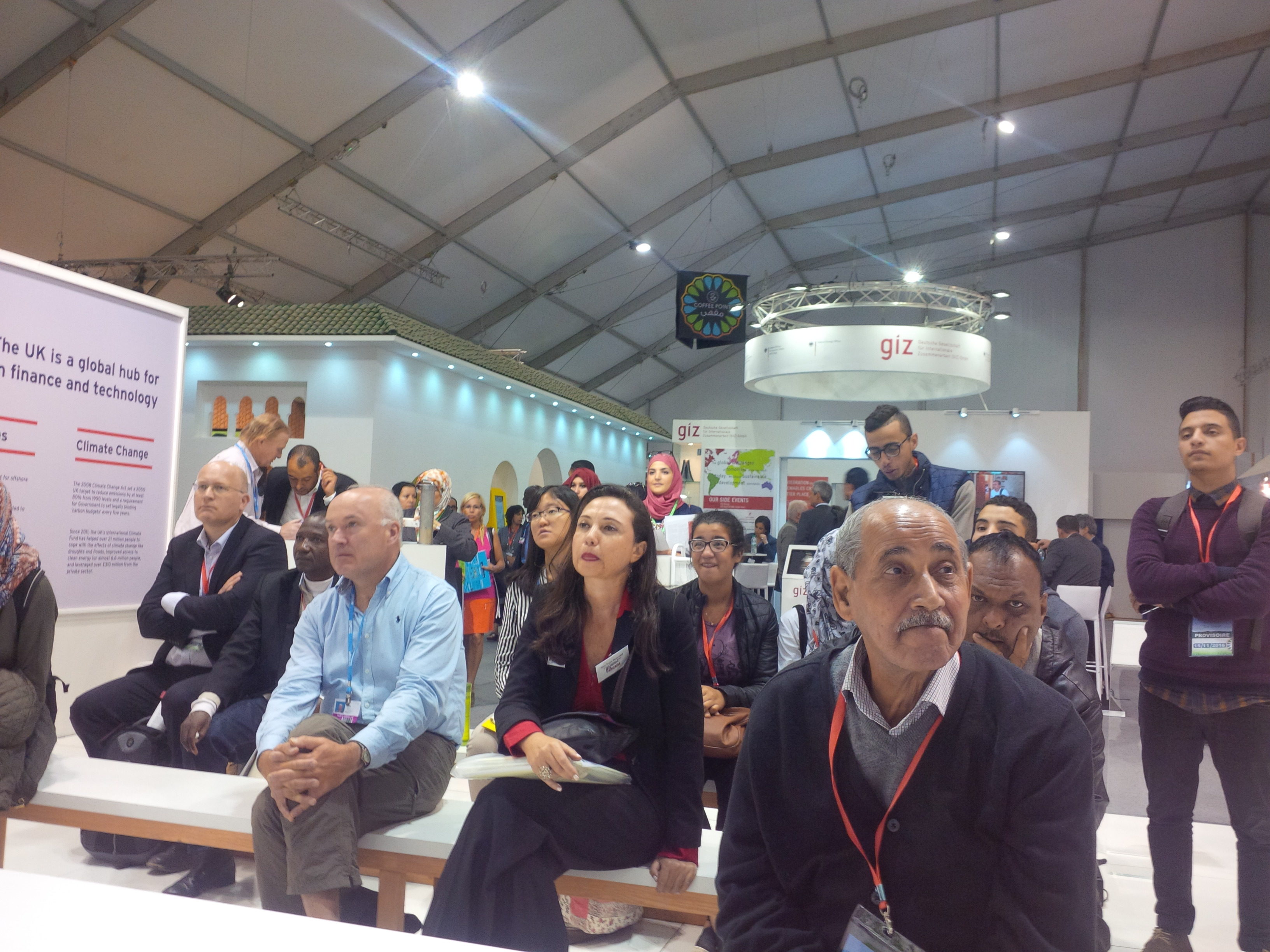-
Inspirational or what ? Blog 6 from COP 22
Posted on November 16, 2016
The man who has given his all to defend the world from the effects of climate change spoke inspirationally this morning to an audience of at least 800. John Kerry, Secretary of State for the US Government, gave a hugely uplifting speech on the state of play with climate change despite there being absolutely no room for complacency.
The Paris agreement was a huge achievement. 109 countries have now signed up and are firmly committed to decisive action, including reviewing their emissions targets every 5 years. Progress has gone well beyond Paris; the world is moving together towards clean energy and for the first time, last year, the investment in renewable energy ($350bn) was greater than in fossil fuels.Renewable energy (RE) is destined to become the world’s biggest market but time is not on our side. 2016 is going to be the hottest year on record following that of 2015, and the last 3 decades have successively been the hottest on record.
22.5 m is the average number of people being moved each year for the last 5 years as a result of climate change.
He went on to report on a very recent visit to Antarctica where the ice melt is gathering pace and explained that we have to get this right and now. If all the ice melts in Antarctica it would cause a rise in sea level of 200ft.
It’s about choices to put the planet back on the road to recovery; at the current pace we will not reach our goal. Despite the investment in RE we are still only generating 10% from those sources. It needs to rise to at least 80% by the middle of this century. The private sector is the most important sector in this context.
It is horrifying that despite the Paris agreement some countries are still investing in coal and other dirty energy. They should be adding the cost of environmental damage to the investment costs to arrive at a fair figure. Carbon pricing is essential and must be a priority.
Towards the end of his speech he touched on the present predicament in the US suggesting, without ever mentioning the President-elect by name, that things can change once off the campaign trail and that climate change should not be a partisan issue.
The global community is more united than ever in confronting the challenge and acting to take it forward; we are all in this together. He commended everyone present for the work they were doing and ended by quoting Winston Churchill; “It is not always enough to do one’s best, but to do what is required”.
Returning now to Monday 14 Nov, I attended an evening side event on Quantative Scientific Evidence for Loss and Damage. This is a topic which should be of interest to INTO members where it comes to evaluating the cost of loss and damage to the cultural and natural heritage and to cultures. At the Paris COP we made some headway on the subject in conjunction with US ICOMOS, UNESCO and the IPCC, suggesting that we might be able to contribute to the IPCC’s next Assessment Report (the 6th) from our own experiences on the ground.
At the side event there were three scientists and a man from Bangladesh, Saleem ul Huq, from whom I have received regular emails over the years as a member of the Loss and Damage Group following the Doha COP, but had never met.
The progress on the subject of compensation for loss and damage has been slow. The topic was first discussed in Cancun at COP 16 in 2010 and 6 years later no firm conclusions have been reached. It is not entirely surprising as there are so many different factors that need to be taken into account.
When Saleem spoke he questioned how science could be used to measure the loss and damage and how it could be used to allocate responsibility. He went on to explain that in Bangladesh, one of the countries most affected by climate change, they couldn’t wait for the scientists to produce a compensation framework; instead the government had been proactive and had set aside $100m each year into a Trust fund to compensate those authorities directly affected.
I asked if any thought had been given by the scientists to loss and damage to the cultural heritage and to loss of cultures and was told there were no simple direct answers to compensation for loss and damage so I am not sure we are much further forward! Saleem did say in response that he thought it should not be a legal but a moral responsibility on the part of governments to pay compensation.
Last, but by no means least, was our own Side Event at the UK Pavilion. Sadly the President of Kiribati was unable to attend since we were showing Sara Penrhyn Jones excellent and moving film of the very real effect of sea level rise on the heritage of the islands. However the British Ambassdor to Morocco, Kathy Betts, was present and kindly opened the event.
I then spoke in general terms about what climate change means for the heritage of our members before asking the other speakers for specific examples related to the topic. Chloe spoke about the work the National Trust EWNI was doing in terms of renewable energy at its properties and then outlined the Fit for the Future Campaign, in which a number of other organisations have joined forces with the NT to lower their carbon footprints, following the exemplary role the NT has been playing.
Cathy Childs told us how it was in the Cayman Islands in terms of threat from sea level rise (average height of the islands no more than 7 m above sea level),the need to preserve the large areas of mangroves which can help to build the sea defences.
After showing the film Elizabeth Brabec, from the University of Massachusetts Amherst, spoke about migration. Finally Bran Quinquis, from Tahiti and an economist with the French Polynesian government who happened to pass by our stand earlier in the day and agreed to present, told us what it really meant for the inhabitants of the Polynesian islands to lose their culture. He told us that migrating was not an option as their roots were so connected to their islands.
More details of our side event, the one we attended afterwards entitled 100% Renewables for 1.5 °, and further insights can be found on Chloe Hampson’s excellent Blog here http://wp.me/p1uhn2-2dgOliver Maurice 16 Nov 2016

 44 (0)20 7824 7157
44 (0)20 7824 7157